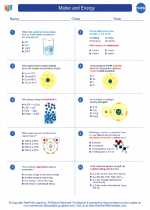Electron
An electron is a subatomic particle that carries a negative electric charge. It is one of the fundamental constituents of matter and is found within the structure of atoms. The behavior and properties of electrons are central to the field of chemistry, as they are involved in chemical bonding and the formation of chemical compounds.
Properties of Electrons:
- Charge: The charge of an electron is -1.602 x 10^-19 coulombs, which is considered the fundamental unit of electric charge.
- Mass: The mass of an electron is approximately 9.11 x 10^-31 kilograms, making it much lighter than protons and neutrons.
- Spin: Electrons possess a property called "spin," which is a fundamental aspect of their behavior in atomic and molecular systems.
- Wave-Particle Duality: Electrons exhibit both particle-like and wave-like behavior, as described by quantum mechanics.
Behavior and Location:
Electrons are located in specific energy levels around the nucleus of an atom. These energy levels, also known as electron shells, are designated by quantum numbers and determine the likelihood of finding an electron in a particular region of space around the nucleus.
Role in Chemistry:
Electrons are directly involved in chemical bonding, where they are shared, transferred, or localized between atoms to form molecules and compounds. Understanding the behavior of electrons is crucial for comprehending the principles of chemical reactions, molecular structure, and the properties of matter.
Study Guide:
When studying electrons, it's essential to focus on the following key areas:
- Understanding the fundamental properties of electrons, including charge, mass, and spin.
- Grasping the concept of electron energy levels and the organization of electrons within an atom.
- Exploring the role of electrons in chemical bonding, including covalent, ionic, and metallic bonding.
- Applying the principles of electron configuration and the periodic table to predict chemical behavior and reactivity.
- Practicing electron configuration and orbital diagrams to represent the distribution of electrons in atoms and ions.
By mastering these foundational aspects of electrons, you will develop a solid understanding of their significance in the field of chemistry.
[Electron] Related Worksheets and Study Guides:
.◂Chemistry Worksheets and Study Guides High School. Matter and Energy

 Worksheet/Answer key
Worksheet/Answer key
 Worksheet/Answer key
Worksheet/Answer key
